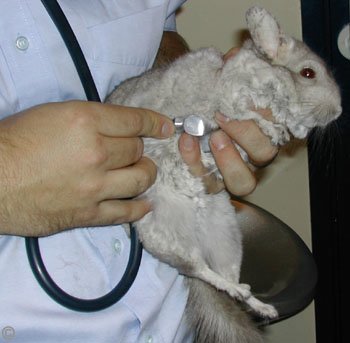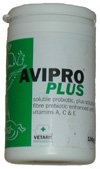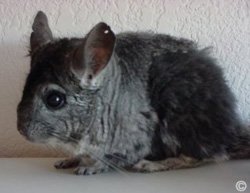 The best cure to any illness, sickness or disease is prevention! A chinchilla will thrive and live a long and healthy life under the correct conditions but their health quickly breaks down when the basics of chinchilla care is not followed.
The best cure to any illness, sickness or disease is prevention! A chinchilla will thrive and live a long and healthy life under the correct conditions but their health quickly breaks down when the basics of chinchilla care is not followed.
A chinchilla will generally hide any illness, sickness or disease very well as in the wild this would make them a prime target for predators. It is therefore important as a chinchilla owner, that you regularly examine a chinchilla to help identify any illness, sickness or disease sooner and prevent the condition progressing to a stage where it is hard to cure, or becomes incurable.
Chinchillas can acquire a disease, illness or sickness at any time and when they do, a chinchilla will go down-hill extremely rapidly, especially if you don't know what to do or what is actually wrong with them!
An understanding of the correct nutrition a chinchilla must have on a daily basis is of great importance, as improper feeding and unbalanced nutritional-ratios are one of the main causes of most illnesses, sickness or diseases in chinchillas.
The proper location and construction of the chinchilla cage is also essential for the prevention of many chinchilla diseases and illnesses. The cage must be housed in a quiet environment so a chinchilla can get a full uninterrupted night's sleep during the daytime hours and must be built to aid fresh air circulation daily. Dark or damp cages are not satisfactory nor are cages kept in a draughty area or in brightly lit areas.
There is sufficient experimental evidence that shows extreme 'environmental temperature' changes have a significant influence in altering a chinchilla's resistance to infectious diseases, especially of bacterial origin. The environmental temperature recommended in the winter months is between 55° - 65°F and in the summer the temperature should not be allowed to exceed 75°F. High temperatures together with excessive humidity levels will prove fatal to a chinchilla and must definitely be avoided at all times.
 During warm/hot climates, help prevent the onset of illness, sickness and disease by placing an ice-pack within the chinchilla cage at all times. This can be made from a tin with the lid on containing frozen iced water inside. Good air circulation with the use of a fan and an open window is paramount but ensure you do not directly aim the fan on the chinchilla cage as this can cause eye problems together with respiratory illnesses and other sicknesses or disease.
During warm/hot climates, help prevent the onset of illness, sickness and disease by placing an ice-pack within the chinchilla cage at all times. This can be made from a tin with the lid on containing frozen iced water inside. Good air circulation with the use of a fan and an open window is paramount but ensure you do not directly aim the fan on the chinchilla cage as this can cause eye problems together with respiratory illnesses and other sicknesses or disease.
Radical changes in a chinchilla's routine, not being allowed out of the cage environment on a daily basis and mishandling of a chinchilla have also proven to significantly influence a chinchilla's resistance to infectious illnesses, sickness or diseases.
Keep to a regular feeding time and ensure a chinchilla is allowed out of their cage environment for at least 1-2 hours every evening. A chinchilla does not like to be handled often and some chinchillas hate being handled at all! If a chinchilla does not like being handled but is forced to do so, their quality of health will start to diminish from the stress and a chinchilla will become more susceptible to a variety of illnesses, sickness and disease.
 Chinchillas have a sensitive digestive tract and any medication, stress or illness can play havoc on their systems making them hard to manage during times of ill health. When a chinchilla is suffering ill health, it is paramount that you add a probiotic such as Avipro Plus to the chinchilla's water system! Avipro Plus is a probiotic combination of bacteria, enzymes, electrolytes and vitamins, all of which are safe for a chinchilla. It is particularly helpful to chinchillas that are undergoing stress or antibiotic treatment, during which the normal gut flora in the intestines may be seriously unbalanced, leading to the establishment of inappropriate bacteria, many of which can form toxins. The good bacteria in Avipro Plus colonise in the chinchilla’s gut for a short time and assists in encouraging the right conditions to allow the natural gut flora to re-establish itself. The vitamins are included to replace those used by the chinchilla under stressful conditions and to help support the immune system.
Chinchillas have a sensitive digestive tract and any medication, stress or illness can play havoc on their systems making them hard to manage during times of ill health. When a chinchilla is suffering ill health, it is paramount that you add a probiotic such as Avipro Plus to the chinchilla's water system! Avipro Plus is a probiotic combination of bacteria, enzymes, electrolytes and vitamins, all of which are safe for a chinchilla. It is particularly helpful to chinchillas that are undergoing stress or antibiotic treatment, during which the normal gut flora in the intestines may be seriously unbalanced, leading to the establishment of inappropriate bacteria, many of which can form toxins. The good bacteria in Avipro Plus colonise in the chinchilla’s gut for a short time and assists in encouraging the right conditions to allow the natural gut flora to re-establish itself. The vitamins are included to replace those used by the chinchilla under stressful conditions and to help support the immune system.
It is important as a chinchilla owner that you have a knowledge of the various illnesses, sickness or diseases a chinchilla can acquire and how to prevent them from happening.
It would be impossible to list all the ailments a chinchilla can acquire on this website, together with comprehensive information about the topic (including the cause, prevention and cure) but you can learn and educate yourself with the Chinchilla A-Z Health & Sickness Bible - an amazing ebook jam packed full of information solely dedicated to chinchilla illness, sickness and disease. There is no other book on the current market like it that collectively lists over 150 different ailments to look out for together with the cause, prevention and 'cure' of a particular sickness, illness or disease. The eBook is packed full of colored photographs to help you recognise a particular ailment and comes as an easy to find A-Z reference guide. A 'must-have' book for any chin-owner that can help add years to your chinchilla's life!

REMEMBER: It is always better to prevent any illness, sickness or disease occurring in the first instance rather than trying to find a cure.
Basic Symptoms Of A Sick Chinchilla
A chinchilla will mask any illness, sickness or disease until it is generally in the latter stages and hard to hide and more importantly - treat! It is therefore paramount you regularly examine and weigh a chinchilla on a weekly basis. Weighing a chinchilla and keeping a record will be helpful in spotting any illness or disease at the earliest stage as in all situations a chinchilla that is unwell will loose weight initially.
Any chinchilla that is sick will appear dull, they are often reluctant to move about the cage and their eyes will lose their clean, bright beady appearance. A sick chinchilla will also expose a different expression or posture to a normal healthy chinchilla and may become more or less vocal. Any chinchilla that is severely affected with a disease, sickness or illness will appear indifferent to their surroundings or to any stimuli, food and water you may offer them. Chinchillas that display such profound symptoms are in a very serious condition and will require immediate and effective treatment if they are to survive!
 Other common symptoms of a sick chinchilla are:
Other common symptoms of a sick chinchilla are:
- Watery eyes
- Nasal discharge of wheezing
- Pawing at mouth
- Constantly attending a particular body area.
- Agitated behavior or complete disinterest.
- Red and warm ears
- Drooling or wet chin/chest area
- Less/More food or water consumption
Key Points To Prevent An Illness, Sickness or Disease
-
Provide the correct nutrition at all times and no treats or substitutes.
-
Ensure the cage is the correct 'size and type' and located in a quiet but airy location.
-
Keep the cage dry and clean at all times and disinfect on a weekly basis.
-
Keep the room environment at a constant year-round temperature between 60 ° - 70°F.
-
Do not over-handle a chinchilla or force them into tricks or a different behavior.
-
Keep drinking water protected from contamination (from food and faeces) by providing water from a bottle attached to the inside of a cage rather than a drinking bowl.
-
Keep food bowls in a position that the pellets cannot become soiled from faeces contaminating the contents.
-
Provide good-quality coarse, fresh hay on a daily basis and throw away hay and pellets from the previous night.
-
Allow a chinchilla daily activity outside the cage environment on a nightly basis.
-
Eliminate any stressful situations or noises.
-
Observe a chinchilla daily for any changes in character or behavior and examine and weigh them on a weekly basis
-
Keep to a regular feeding time (preferable after playtime outside the cage environment - this also helps a chinchilla return to its cage with no added stress).
-
Add Avipro Plus to the chinchilla's water system daily as a preventative measure.
-
Finally, educate yourself on all the various illnesses, sickness or disease a chinchilla can acquire and learn the individual preventative measures for optimum health.
-
Further Reading Relating To Chinchilla Illness, Sickness & Disease:
An Essential Guide To Owning A Chinchilla, Chinchilla Anatomy, Chinchilla Care, Chinchilla Health, Examining A Chinchilla, Home Remedies And Safe Medications, Minerals And The Relation To Chinchilla Disease, Nutrition, Supplementation, Vitamins And The Relation To Chinchilla Disease.


 The best cure to any illness, sickness or disease is prevention! A chinchilla will thrive and live a long and healthy life under the correct conditions but their health quickly breaks down when the basics of chinchilla care is not followed.
The best cure to any illness, sickness or disease is prevention! A chinchilla will thrive and live a long and healthy life under the correct conditions but their health quickly breaks down when the basics of chinchilla care is not followed. During warm/hot climates, help prevent the onset of illness, sickness and disease by placing an ice-pack within the chinchilla cage at all times. This can be made from a tin with the lid on containing frozen iced water inside. Good air circulation with the use of a fan and an open window is paramount but ensure you do not directly aim the fan on the chinchilla cage as this can cause eye problems together with respiratory illnesses and other sicknesses or disease.
During warm/hot climates, help prevent the onset of illness, sickness and disease by placing an ice-pack within the chinchilla cage at all times. This can be made from a tin with the lid on containing frozen iced water inside. Good air circulation with the use of a fan and an open window is paramount but ensure you do not directly aim the fan on the chinchilla cage as this can cause eye problems together with respiratory illnesses and other sicknesses or disease. Chinchillas have a sensitive digestive tract and any medication, stress or illness can play havoc on their systems making them hard to manage during times of ill health. When a chinchilla is suffering ill health, it is paramount that you add a probiotic such as Avipro Plus to the chinchilla's water system! Avipro Plus is a probiotic combination of bacteria, enzymes, electrolytes and vitamins, all of which are safe for a chinchilla. It is particularly helpful to chinchillas that are undergoing stress or antibiotic treatment, during which the normal gut flora in the intestines may be seriously unbalanced, leading to the establishment of inappropriate bacteria, many of which can form toxins. The good bacteria in Avipro Plus colonise in the chinchilla’s gut for a short time and assists in encouraging the right conditions to allow the natural gut flora to re-establish itself. The vitamins are included to replace those used by the chinchilla under stressful conditions and to help support the immune system.
Chinchillas have a sensitive digestive tract and any medication, stress or illness can play havoc on their systems making them hard to manage during times of ill health. When a chinchilla is suffering ill health, it is paramount that you add a probiotic such as Avipro Plus to the chinchilla's water system! Avipro Plus is a probiotic combination of bacteria, enzymes, electrolytes and vitamins, all of which are safe for a chinchilla. It is particularly helpful to chinchillas that are undergoing stress or antibiotic treatment, during which the normal gut flora in the intestines may be seriously unbalanced, leading to the establishment of inappropriate bacteria, many of which can form toxins. The good bacteria in Avipro Plus colonise in the chinchilla’s gut for a short time and assists in encouraging the right conditions to allow the natural gut flora to re-establish itself. The vitamins are included to replace those used by the chinchilla under stressful conditions and to help support the immune system.
